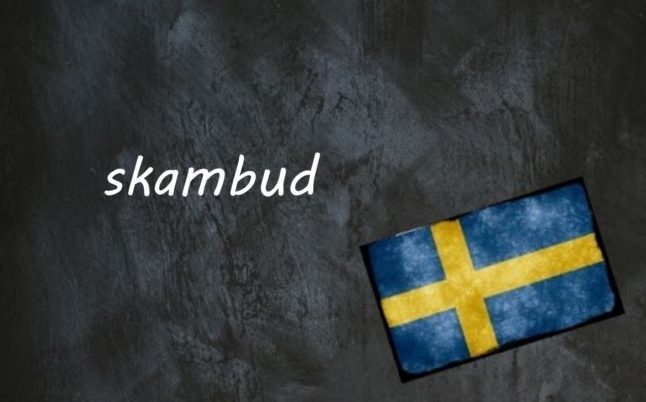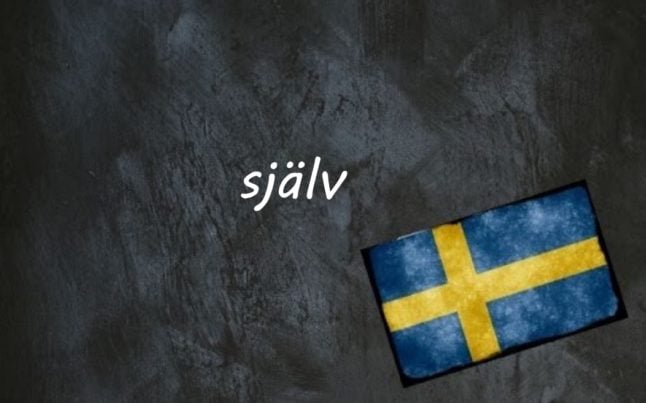When a property is put up for sale in Sweden, it usually comes with an advertised utgångspris (asking price), the minimum price for which sellers are supposedly willing to accept offers.
In times gone by when the Swedish property market was at its peak, you could usually expect that the actual selling price would be higher than the asking price as buyers would push the price up in their attempts to outbid each other.
But the current economic slump means that sellers are often happy to get even just one person interested in their property, with many homes advertised for months before anyone snaps them up.
The state of the market is such that if you’re a buyer, you may even be able to haggle about the price and put in an offer lower than the asking price. That’s where the word skambud comes in.
It used to be seen as a little bit cheeky to offer to pay less than the asking price, so it’s perhaps no surprise that the compound word is made up of “shame” (skam) and “bid” (bud). It refers to an offer that’s so low it’s almost an insult. “For shame!” a seller might cry in response.
It also used to be pointless, as in nearly all cases you would quickly be outbid by other buyers.
But these days, a skambud may not actually be too shameful.
In fact, many estate agents advise that if the asking price is just above what you’re able to pay, you may be able to successfully put in a lower offer, due to the slow housing market – although if you’re doing it in good faith it’s arguable whether it classifies as a skambud or not.
The history of the word skam is debated, but it may be related to an old Germanic word that meant to cover something up which then grew to refer to the embarrassing thing you wish to cover up.
Its verb form is att skämmas (jag skäms – I’m embarrassed/ashamed; du skämmer ut mig – you’re embarrassing me) but in recent years a newer verb has cropped up, inspired by a culture of online shaming where an internet mob gangs up on a target due to perceived poor behaviour or social transgressions. In Swedish this is called att skamma.
The word bud, other than of course meaning bid, also appears in words such as ett sändebud (a messenger), att stå till buds (to be at someone’s disposal), ett budskap (a message), ett erbjudande (an offer), att bjuda (to offer something to someone) and de tio budorden (the ten commandments).
Examples:
Tror du jag kan komma undan med ett skambud?
Do you think I can get away with an offer below the asking price?
Ingen vill köpa vårt hus – vi har inte ens fått ett skambud!
No one wants to buy our house – we haven’t even received an offer below the asking price!
Don’t miss any of our Swedish words and expressions of the day by downloading our new app (available on Apple and Android) and then selecting the Swedish Word of the Day in your Notification options via the User button.



 Please whitelist us to continue reading.
Please whitelist us to continue reading.
I note that the present form of “att skämmas” is “skäms”.
I know that second conjugation verbs whose stem ends in “-mm” or “-nn” have only a single consonant in the past forms, e.g. “skämde, skämt”, “kände”, känt”.
I thought maybe a similar rule applies to the present passive. The present passive of “skämma” is “skäms”, but I know that the present passive of “känna” is “känns” (i.e. it keeps the double consonant). So it looks as if this rule only applies to verbs whose stem ends in “-mm”.